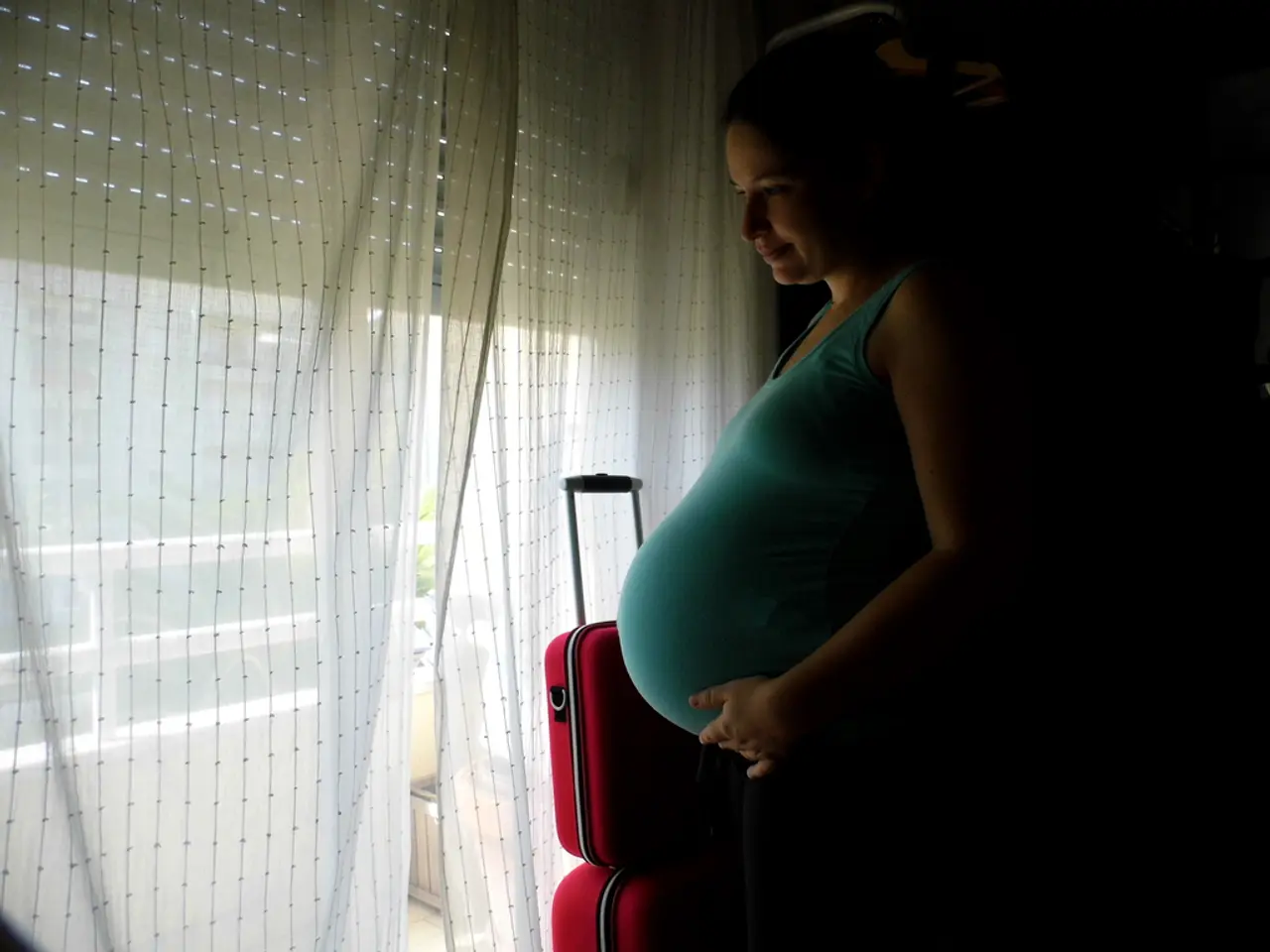Pregnancy and Air Travel: Safety Considerations
Air Travel During Pregnancy: Essential Tips for a Safe Journey
Pregnancy can be an exciting time, but it also requires special care and attention, especially when it comes to air travel. Here are some key facts to help ensure a safe and comfortable journey for pregnant passengers.
Firstly, it's important to adhere to timing limits. Pregnant women are generally advised to fly before 37 weeks for single pregnancies and before 32 weeks for multiple pregnancies [1][3]. Pregnant women beyond 28 weeks should carry a doctor’s note and relevant medical records when flying, and always confirm specific airline policies, as many require certification close to the due date [1][3].
In-flight precautions and activities are crucial for a safe and comfortable journey. Getting up and walking every 30 minutes helps maintain circulation and reduces the risk of Deep Vein Thrombosis (DVT) [2]. Wearing compression socks, especially on medium to long-haul flights, can minimize leg swelling and improve blood flow [2]. Staying hydrated is also essential, as drinking plenty of water helps prevent dehydration [2]. Dressing comfortably in loose, breathable clothing and adjustable shoes can accommodate swelling, while a rolled-up jumper or lumbar support cushion can provide relief for backache [2].
Some additional tips include avoiding sitting in exit rows (as per some airlines’ rules), consulting healthcare providers regarding international travel, vaccinations, and personal health conditions before flying, and researching health conditions and health services provided at the destination for international flights [2][3]. If flying late in pregnancy or after childbirth, extra medical precautions are advised to ensure safety [5].
Pregnant passengers should also be mindful of potential boredom during travel, especially in the late stages of pregnancy. It's advisable to avoid air travel unless necessary.
Other considerations include asking airport security personnel about the safety of security doors and detectors during entry, and avoiding consuming foods and drinks that may cause stomach problems both before and during the flight, as gases can expand at altitude and cause discomfort [2][3]. Cabin pressure on planes can cause foot swelling, so taking off shoes and wearing slippers or comfortable shoes can help alleviate this.
It's worth noting that airlines do not ask about pregnancy status during booking, but they may not accept pregnant women after the 36th or 37th gestational week (32 weeks for multiple pregnancies) due to potential birth complications mid-flight [4]. Almost no modern planes cause problems for pregnant passengers due to cabin pressure adjustments.
In summary, air travel during pregnancy is generally safe with proper preparation and adherence to timing limits, maintaining good circulation with regular movement, staying hydrated, wearing comfortable clothes and compression socks, and always carrying medical documentation [1][2][3]. Pregnancy is a special period in a person's life, and it requires utmost care and attention to sanitation and related measures for the safety of both the mother and baby/babies.
Traveling during pregnancy can be beneficial for a health-and-wellness lifestyle, but it's essential to prioritize science-backed precautions for a safe journey. For instance, pregnant women should follow timing limits, maintain circulation with regular movement, and stay hydrated during air travel. Moreover, exploring health-and-wellness tips for travel, such as comfortable clothing, compression socks, and travel-friendly lifestyle choices, can enhance comfort and safety during the journey.




